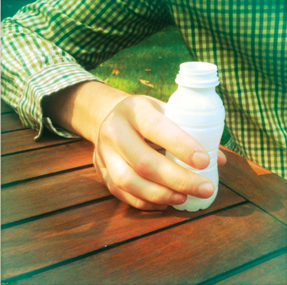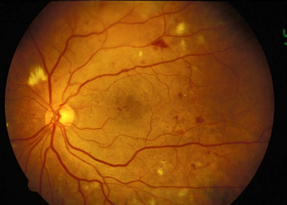Probiotics have potential, though definitive evidence is lacking
Probiotics are gaining some rationale for use##mdash;not for everything, but for preventing anti-biotic-associated diarrhea and Clostridium difficile infections in hospitals. But many products on the market don't live up to their own hype.
If you believe the advertisements, probiotics can fix just about everything that ails your patients.
“It goes from arthritis to senility to length of life to obesity to diabetes. You name it, there's somebody out there that claims that your intestinal flora has something to do with it,” said Barry Goldin, MS, PhD, a professor in the department of public health and community medicine at Tufts University School of Medicine in Boston.

The evidence lags far behind these claims, experts agree. But they say there are some proven applications for probiotics that physicians could work into their practices, as well as some promising ones that they might want to keep an eye on.
Evidence base
The strongest evidence for probiotics is in patients taking antibiotics. In the past year, two large meta-analyses have found evidence that probiotics help prevent antibiotic-associated diarrhea and Clostridium difficile-associated diarrhea, respectively.
“We found about a 42% reduction in the likelihood that people would get diarrhea if they used probiotics at the same time [as antibiotics],” said Sydne J. Newberry, PhD, a co-author of the antibiotic-associated diarrhea study (published in the May 9, 2012, Journal of the American Medical Association) and a communications analyst with RAND Corporation in Santa Monica, Calif.
The review authors also found some gaps in the evidence, however. “There's very little systematic effort to address safety on the part of any researchers,” said Dr. Newberry. “Most of the safety data are sort of accidentally reported [rather than prespecified as a study outcome].”
According to those available safety data, probiotics appear safe for most patients, she said. A few more sickly patient populations may be at increased risk of side effects, though. “There may be concerns among people who are immunocompromised, people who have a number of serious chronic diseases. Most of the serious adverse effects were reported among hospitalized ICU patients,” Dr. Newberry said.
Some patients sick enough to be hospitalized, however, benefited from probiotics, according to the C. difficile analysis in the Dec. 18, 2012, Annals of Internal Medicine. Probiotics reduced the risk of C. difficile diarrhea by 66% in hospitalized patients taking antibiotics, the review found.
“It's a relatively inexpensive intervention that can be applied in hospitals to patients that are not immunocompromised, and it can result in large risk reductions,” said Bradley Johnston, PhD, lead author of the study, a scientist at Toronto's Hospital for Sick Children and an assistant professor in the Institute for Health Policy, Management and Evaluation at the University of Toronto. The probiotics also appeared relatively safe in his analysis, with no significant difference in rates of adverse events between patients taking them and those taking placebo.
The finding of effectiveness in C. difficile prevention could prove to be particularly important to improving the quality of life of hospitalized patients, decreasing C. difficile-associated deaths and substantially decreasing health care costs, according to Dr. Johnston. “[For] patients that acquire diarrhea plus C. diff infection, the symptoms can be quite severe and can be recurrent over a lifetime,” he said.
Given the observed preventive effects against both types of diarrhea and little indication of harm, physicians who want to should go ahead and recommend probiotics when they prescribe antibiotics, the researchers said. “Assuming that your patient is relatively healthy, don't be afraid to try it. There's no guarantee it's going to work, but it's certainly worth a try,” said Dr. Newberry.
But what kind?
A major question that neither analysis definitively resolved is what strain or type of probiotics works best. “Most of the products that were in the studies that we looked at were products that had been concocted in laboratories, or they were simply not identified in terms of the strain,” said Dr. Newberry.
Both analyses did find some indication that therapies combining multiple probiotics might provide the best protection. In the C. difficile analysis, this was just a trend. “Multiple-species probiotics were more effective than single-species probiotics, but the test of interaction demonstrated a non-significant difference,” said Dr. Johnston. “Further research needs to be done, where we look at the efficacy and safety of single versus multiple-strain specific probiotics.”
Although the review didn't find specific species, strains or probiotic dosages that significantly outperformed the others, Dr. Johnston suggested that 10 billion colony-forming units of probiotic yeast or bacteria per day is likely an effective dose.
In this setting of uncertainty, some practicing clinicians knowledgeable about probiotics have their patients try multiple options, said Dr. Newberry, describing a conversation she recently had with a gastroenterologist. “He was saying, ‘If one doesn't work, I just suggest trying another one,’” she reported.
Of course, that approach won't work perfectly for all indications. “If somebody has an acute condition like antibiotic-associated diarrhea, you don't really have time to [try multiple products],” said Dr. Newberry. “For a chronic condition like irritable bowel, that's fine.”
Additional applications
Other gastrointestinal problems are one of the most common and likely applications of probiotics beyond antibiotic-related diarrhea. “There are so many people who have irritable bowel or colitis or Crohn's or inflammatory bowel disorder. That seems to be an area where there's a lot of work going on in probiotics,” said Dr. Newberry.
While the research work is ongoing, some prescribers aren't waiting for the results. “If people have consistent problems with gastrointestinal function, [gastroenterologists] will sometimes say, ‘Try a probiotic,’” said Dr. Goldin.
Among researchers, there's also interest in using probiotics with respiratory conditions such as asthma. “There has been some evidence that they can help prevent respiratory infection, particularly viral infection. ... To help asthma through probiotics, the best way may be through stopping exacerbations,” said Paul Forsythe, PhD, assistant professor of medicine at McMaster University in Canada and author of an article on probiotics and lung disease in the April 2011 CHEST.
This application is still in the animal-research stages at this point, he said.
Dr. Goldin noted, however, that the early stage of the evidence doesn't stop marketers from pushing the many proposed benefits of probiotics. Dr. Forsythe agreed. “The problem is there's a lot of probiotics on the market that haven't really had any health claims proved. In the European Union, it's now illegal to use the term ‘probiotic’ in yogurts and preparations unless you have a proven health claim,” he said.
Dr. Goldin worries that the research funding necessary to prove or disprove claims about probiotics is unlikely to materialize, because unpatentable probiotics don't hold much profit potential for pharmaceutical companies.
“A double-blind randomized clinical trial with a sufficient number of subjects to come up with an answer is very expensive. Who is going to fund this? What company is going to invest in something they can't protect?” he said.
One answer to those questions might reside in Dr. Forsythe's vision of a potential future for probiotics. “One thing might be not directly using probiotics, but learning from how the probiotics work and developing a microbe-based therapeutic strategy,” he said, noting that this aspect of the probiotic puzzle is also in its infancy. “There still needs to be quite a bit of work done.”





